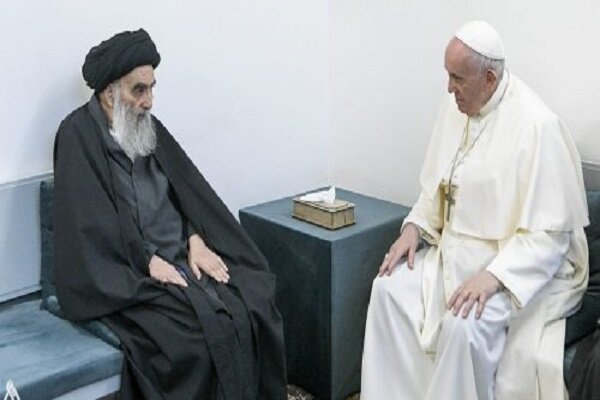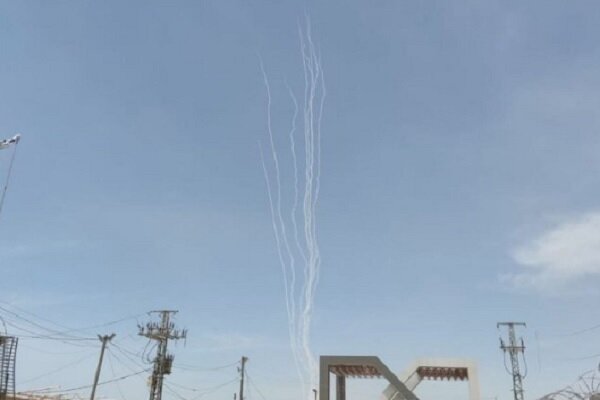Embracing the Zeitenwende: A Transformative Shift in Our Reality
For years, Germany has recognized the urgent need to enhance its national defenses, and recent developments indicate that it is finally poised to take decisive action. The primary catalyst for this shift was Russia’s annexation of Crimea and the subsequent invasion of eastern Ukraine in 2014, which prompted a lackluster response from Berlin. Although Germany engaged in discussions with the Kremlin and imposed some sanctions, it ultimately returned to business as usual with Russia. However, when Russia escalated its aggression and invaded Ukraine in 2022, Chancellor Olaf Scholz proclaimed a Zeitenwende, or “turning point,” vowing to increase defense spending, provide extensive aid to Ukraine, and reduce Germany’s energy reliance on Russia. Despite these declarations, the Zeitenwende seemed more nominal than substantive, as internal coalition conflicts hindered any significant overhaul of Germany’s defense posture.
Now, under new political leadership, Germany appears ready to embrace the transformation that its current geopolitical climate demands. Following elections in February, the incoming government is poised to assert its autonomy from Washington. This marks a pivotal moment as Germany prepares for a future where the United States may no longer be a reliable guarantor of European security. To modernize its military and invigorate its economy, Berlin is ending a long-standing commitment to austerity by lifting a constitutional restriction that has limited annual debt spending to just 0.35 percent of its Gross Domestic Product (GDP).
This newly assertive Germany will be able to support Ukraine independently, free from the constraints of U.S. leadership. With a lessened reliance on an unpredictable American administration that has shown reluctance to engage Europe on Ukraine, Kyiv stands to benefit from Berlin’s newfound independence. Furthermore, Germany’s proactive stance could inspire other European nations to bolster their support for Ukraine. Berlin is now positioned to take the lead in safeguarding Ukraine’s sovereignty and integrity while advocating for its acceptance into the European Union.
However, this push for autonomy carries significant responsibilities. Germany will need to assume primary responsibility for deterring Russian aggression in Europe, a daunting and perilous task. The resurgence of intense nationalism could result in a rearmed German military falling under the control of extremist factions, which could pose a threat to its neighboring countries. While a more independent Germany would enhance Europe’s global presence, it may also complicate intra-European relations as the continent adapts to a more powerful Berlin.
A Historical Context
For the past eighty years, West Germany, and later a united Germany, relied heavily on the United States for security. This relationship, while mutually beneficial, was not without its disagreements, such as during the U.S.-led invasion of Iraq in 2003. Nevertheless, the general sentiment among Germans was one of comfort under the protection of U.S. military might, viewing their security as intertwined with transatlantic ties.
Chancellor Angela Merkel, who held office from 2005 to 2021, thrived in this environment. Her foreign policy emphasized transatlantic cooperation, envisioning a peaceful Europe mediated by the European Union and maintaining a non-confrontational stance toward Russia. Merkel consistently approached international relations through diplomacy rather than military force, advocating for multilateral solutions and adherence to the rule of law.
In response to Russia’s annexation of Crimea, Merkel maintained that there was “no military solution” to the crisis, striving to uphold a post-1991 European order where institutions like the EU and NATO dictated the continent’s future. Despite Russian aggression, she sought to avoid transforming Germany’s defense posture, preferring to manage relations with Russia while preserving U.S. commitments to European security.
Scholz, Merkel’s successor, shared similar inclinations, albeit with a more cautious approach. His Zeitenwende initiative included establishing a special fund exceeding $100 billion to upgrade Germany’s military capabilities, yet the constitutional debt brake limited more ambitious defense investments. While Germany accepted over one million Ukrainian refugees and provided substantial aid to Kyiv, it struggled to address its military shortcomings adequately.
Several factors contributed to Germany’s slow defense response, including internal political realities. Scholz’s Social Democrats have a long history of engagement with Russia dating back to the Ostpolitik era, making a complete policy shift challenging. Other political factions also favored maintaining ties with Russia even after the full-scale invasion of Ukraine, complicating Scholz’s efforts. Additionally, the rise of the far-right Alternative for Germany (AfD) party, which gained significant traction during Scholz’s tenure, complicated the political landscape.
Germany’s New Direction
Friedrich Merz, the newly elected leader from the Christian Democratic Party, is eager to reduce Germany’s dependence on U.S. security. This shift comes as a surprise given his background, as Merz has historically identified as a transatlanticist. However, following the inauguration of U.S. President Donald Trump, public sentiment in Germany shifted dramatically. The Bundestag recently voted to lift the debt brake, enabling Germany to allocate over a trillion dollars towards defense and infrastructure.
There is significant public support for a stronger and more independent Germany, which is adding momentum to the country’s transformation. Merz’s initiative to remove the debt brake is driven by a widespread belief that the United States may not continue to guarantee European security, leading to a reevaluation of the longstanding Westbindung concept. As Germany redefines its security posture, it is poised to liberate itself from the constraints imposed by historical adversaries, the United States, and internal political pressures.
Other European nations and the United States are likely to welcome Germany’s commitment to defense spending, recognizing the shared concerns regarding Russian aggression. Countries like France, Poland, and the UK will likely collaborate with Germany to enhance its military capabilities, addressing gaps in European defense. A more robust Germany could also demonstrate to U.S. leadership that it is willing to shoulder its responsibilities within NATO and collective defense frameworks.
Potential Consequences of Rearmament
While the necessity for Germany to rearm is clear, it raises concerns regarding potential long-term implications. Europe experienced relative peace from 1945 to 2014 largely because nations rejected the notion that military force could resolve disputes. Instead, they formed nonmilitary institutions, like the EU, to mediate conflicts. A return to aggressive nationalism could disrupt this equilibrium.
Germany’s historical demilitarization played a significant role in fostering peace on the continent. Although West Germany maintained a formidable military during the Cold War, it was under the occupation of foreign powers, limiting its sovereignty. After reunification, Germany significantly reduced its military footprint and focused on diplomatic engagements.
Germany’s primary ambition remains a peaceful European landscape, yet the current rearmament signals a desire for greater autonomy in decision-making. Former Secretary of State Henry Kissinger famously remarked that Germany was “too big for Europe, too small for the world,” suggesting that while Germany may not aspire to global superpower status, it could play a dominant role within Europe. However, a militarized Germany risks being perceived as a regional hegemon, which could unsettle its neighbors.
The first challenge to a more assertive Germany will likely come from Russia, traditionally Germany’s rival in central and eastern Europe. As Germany strengthens its military capabilities in response to Russian aggression, Moscow may resort to tactics designed to undermine this newfound autonomy, including attempts to provoke crises that would deter Germany from pursuing its defense objectives.
A rearmed Germany must navigate a delicate balance to ensure that its military does not fall into the hands of ultranationalists. The historical context of extreme nationalism in Germany has fostered a reluctance to engage in military conflict. However, the rise of nationalism across the globe poses a threat that could lead to unpredictable outcomes in Germany’s foreign policy.
In conclusion, while a rearmed Germany could serve as a stabilizing force in Europe, it must tread carefully to avoid exacerbating tensions both within and outside its borders. The United States has a critical role to play in facilitating this transition, ensuring that any reduction in its military presence occurs gradually to prevent power vacuums that could lead to fear and instability. With careful planning, a rearmed Germany could emerge as a balanced and responsible leader in European security.
Michael Kimmage is a Professor of History at the Catholic University of America and the author of The Abandonment of the West: The History of an Idea in American Foreign Policy.
Sudha David-Wilp is the Vice President of External Relations and a Senior Fellow at the German Marshall Fund of the United States.






